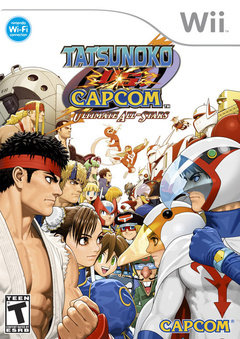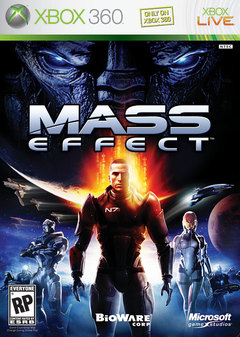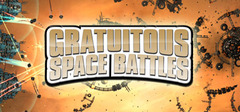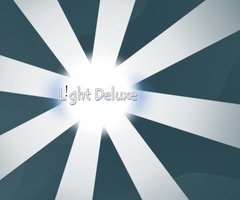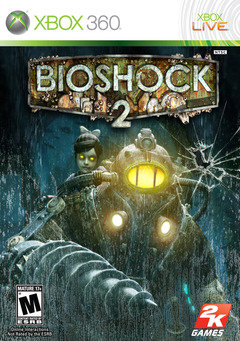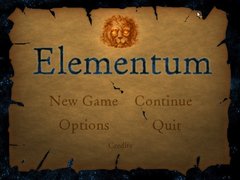Day Five Recap
Five full days of first hour gaming have been completed, and talk about a blockbuster 24 hours! We played Modern Warfare 2, Dragon Age: Origins, Mass Effect 2, and BioShock 2 for fans of the latest and greatest, and tried out The Legend of Zelda: Spirit Tracks and Mario & Luigi: Bowser's Inside Story to see how Nintendo's latest portable offerings fared. In November, we featured a licensed games month, and played a bunch of first hours of a wide variety of games including Beetle Adventure Racing and Dragon Ball Z: Budokai.
We also introduced a new feature called Half-Hour handheld, for those portable games where playing for an hour is just too long. TouchMaster 3 and Call of Duty: Modern Warfare: Mobilized have been played so far, with more to come in the future. I decided not to include them in the recap because introducing half-hour increments might get a tad messy.
The First Hour Podcast - Episode 4
Alas, episode four was never meant to be. Technical difficulties marred our first recording of it, and we just didn't have our heart in subsequent recordings. We have decided to leave the episode as the mess it was and move on to a fresh episode five.
Tatsunoko vs. Capcom: Ultimate All-Stars
Tatsunoko vs. Capcom: Ultimate All-Stars is the latest installment in the crossover series developed by Eighting and published by Capcom. Originally released in Japan more than a year ago (Dec 11, 2008), Tatsunoko vs. Capcom is finally making it's stateside debut January 26th, 2010.
You may be asking yourself, "Who the heck are these Tatsunoko characters?". I myself am asking this same question as I venture into this unknown universe. To my current knowledge, it is basically one of the grandfather anime production studios that really took off in the 80s and early 90s in Japan. Most of their work made it overseas with the likes of Samarai Pizza Cats, G-Force, and Robotech. If you grew up with cartoons in the 90s, there is a chance you will run across some familiar faces here (though you may have forgotten their names).
Capcom took a huge gamble bringing such an unknown universe stateside. To put the odds in their favor, the game has gained a few critical changes. First off, online match making has been included. Secondly, at the cost of losing one character from the original Japanese game due to licensing issues (see Hakushon Daimaō), Capcom has graciously added five new playable characters to the international version of the game.
This game was never originally planned to make it over here. I was able to play the title while I was over in Japan a year ago and was super excited to hear Capcom was putting so much effort into bringing it overseas. The game definitely warrants a purchase and fills the empty void of 2D fighters (with online) on the Wii. Hopefully word gets out about this game because I have a feeling it's going to be an uphill battle. I've lived in Japan for two years and I still don't know who half these Tatsunoko characters are.
Mass Effect: An Audio-Visual Experience
Welcome to Mass Effect: An Audio-Visual Experience.
Often in life, people notice a gorgeous environment or model or visual effect or even just an angle in relation to the scenery. Thanks to the magic of image capturing, these moments can be preserved for future savoring and to remember the moment. The same experiences can happen while playing games. Due to the magic of screen/video capture software (Fraps in particular), these moments and experiences can be captured for display for others or self in the future.
While playing Mass Effect, I noticed a relatively high amount of impressive scenery and images being captured, from which this idea was formed. As far as the specific idea for an audio-visual experience, I'll start by saying that people do things for any large number of reasons. To narrow down, common reasons for playing games may include the desire to distract oneself, desire for competition, desire for mental stimulation, and/or the desire to get lost in a new subjective experience. The goal of this article is to give you a subjective audio-visual experience without needing to travel through the entire game yourself. If you are new to the game, it will lead you through its entirety, accustoming yourself to the environments, style, and action. If you have already played the game, it will jog memories and rekindle an experience trapped down in long-term memory. Great care has been taken to withhold any apparent spoilers for those who have not experienced the game while still keeping the experience intact.
This introduction may be withheld in future iterations of Audio-Visual Experiences (if any) to better focus on the experience. In addition, this installment will only be a pictorial experience due to a sudden, poorly-timed harddrive failure. Only the images were uploaded to the internet before the unfortunate crash.
Gratuitous Space Battles
We finish off our second annual indie games month with Gratuitous Space Battles, an epic space battle simulator from Positech Games. During our first independent games month last year, we featured Kudos 2, a life simulator also created by the one man team of Cliff Harris at Positech Games. This guy likes his simulators, whether they're of space, life, or Democracy, but Gratuitous Space Battles is a seriously awesome game.
Gratuitous Space Battles is the first game I ever played of its kind. It's almost like one giant, single turn of a board game, or Civilization. Your opponent's pieces are in place and visible on the board, and it is your job to create and deploy a fleet of ships that can combat and destroy them, hopefully while taking minimal losses yourself. Once you click Fight, there's nothing else you can do. It feels very... unnatural at first, like the developer is taking away control of the most enjoyable part of the game. There are explosions and debris everywhere, and you want to be part of the action. But then you begin to realize that the actual simulation isn't the game, but everything before it.
It's fairly obvious that Gratuitous Space Battles is not a game for everyone. There's no real-time micro-management, no hotkeys to quick select a group of ships, and especially no mouse button spamming to get your point across. Gratuitous Space Battles is one of the finest, genre-defining games I've ever played. The game is simply in its own category. I honestly can't give the game a final score because I don't know what to compare it against.
Gratuitous Space Battles was developed for Windows but also works great in Wine on Linux, which is how I played it.
The First Hour Podcast - Episode 3
Pixel Boarder and winter sports gaming
I've played hundreds of games in my lifetime, but most of them are long forgotten memories. But sometimes those memories can be dislodged from the deep to remind you of something. Maybe it was just about how simple games used to be, or how they invoked the imagination so much while doing so little, or that games actually used to be difficult.
Pixel Boarder is one of those games. I'll be completely honest: I'm not very good at this game at all. I always forget which to push the joysticks to rotate in a particular direction, and I never seem to have enough speed to do anything cool. But that is really not that big of deal to me right now, mostly because of how much nostalgia this game was able to produce in such amount short time.
I'll spend a few paragraphs talking about Pixel Boarder and then explore my past history in winter video games.
L!ght Deluxe
Simple yet complex? Possibly. Simply complex? Not quite right. I know it’s here somewhere and I think you get the point. L!ght Deluxe is a delightfully simple puzzle game from a new-to-me Indie Developer: Nemo Games. Looking at their website, it would appear that L!ght Deluxe is their first, or perhaps their only game. While the game definitely feels like an early effort, it shows promise and offers some interesting aspects to its gameplay.
L!ght deluxe is built on a basic concept that allows degrees of complexity to be added as you advance through the "levels". At its elemental level, you are trying to connect a line, uninterrupted, from its origin to its ultimate destination. Each puzzle takes place on a large grid, much like a Chess board. Early levels are smaller, perhaps grids that are 6 x 6 squares in size. However, as levels increase in complexity and difficulty, they get larger.
The line you are tasked with completing represents light and behaves as one would expect a beam of light (or laser to add a bit of intensity) to behave. In my opinion, it’s this foundational principle that allows the game to be successful much earlier than it would be otherwise. We all inherently understand that light bounces off reflective surfaces and changes colors as it passes or filters through other materials. The nature of light, and our assumed understanding of it, allows the developers to move more quickly with tutorials as we progress through the game and are introduced to the gradually increasing complexity of the puzzle designs.
BioShock 2
The sequel to the original BioShock has finally arrived, and boy, is it good! BioShock 2 returns the player to Rapture, the underwater city dreamed up by Objectivist Andrew Ryan. Many gamers were skeptical of the need for a sequel, myself included, but developer 2K Marin made me a believer.
I'm not sure how much more I can say without actually reviewing the game, so let's just get into that. As usual, the multiplayer aspect of the game will not factor into my final opinion very much but I did play it for some time and will provide my thoughts on it. This review is based on the Xbox 360 version that 2K Games provided me a review copy of. I am also a big fan of the first game and you can read my review and thoughts on the original BioShock for comparison if you'd like.
Finally, check out the first hour review of BioShock 2 if you're interested.
Elementum
Elementum is an upcoming puzzle game being released by indie developer One Thing Studios. I played the demo recently and really enjoyed its mechanics and can see it being a decent hit for the developers. The concept is simple but there's really a ton of room for potential. I'm looking forward to its full release soon and hope the full game is as good as the demo.
By the way, the demo works perfectly in Wine on Linux, so hopefully there aren't any incompatibilities introduced with the full game.
If I had to describe Elementum, I would call it a mix of Peggle, Bejeweled, and air hockey. You're basically presented with a bunch of balls (or particles) you need to destroy. To remove them from the board, you need to shoot a ball from the outer edge into the mix and group at least three of the same color together. If the shot ball comes in contact with another ball, they switch places: the shot ball is now at rest and the stationary ball is ricocheted off. With a normal shot, one ball goes in and one ball goes out. The ball heading out must now be caught though by the device that shoots balls in. It may sound a bit confusing but it is really very simple, check out the screenshot.

